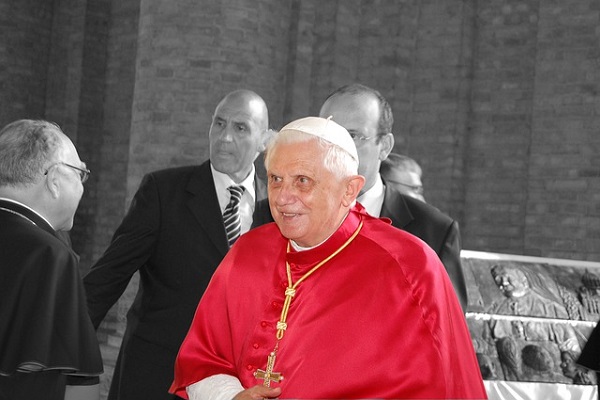
Pope Benedict Blames the 1960’s Sexual Revolution for Church Sex Abuse
- By Gary Nguyen --
- 12 Apr 2019 --

Analysts have strongly criticized the essay.
Joseph Ratzinger, better known as former Pope Benedict XVI, has published an essay where he analyzed the sex abuse scandal presently ravaging the Catholic Church.[/tweetit] The retired pope has blamed the scandal on the 1960s sexual revolution and the number of church laws which protected priests. The analysis took almost everyone by surprise as the writings seemed to contradict Pope Francis’ utmost efforts to manage the most crucial issues ever to infect the Catholic Church from its inception. One Vatican historian even went to the length of describing the essay written by the former head of the church as “catastrophically irresponsible” as it clashed against Francis’ efforts to guide the Catholic Church out of its sex abuse crisis. Benedict’s essay was published in Klerusblatt, a German monthly magazine. The former pope claimed in the introduction that both Pope Francis and the secretary of Vatican state had provided him the necessary publishing permissions. The press office of the Vatican confirmed Benedict as the author of the essay.
Pope Benedict Blames the 1960’s Sexual Revolution for Church Sex Abuse[/tweetthis]
In his essay, Benedict connected the clergy abuse scandal to the 1960s sexual revolution. He gave the example of sex being shown in films shown in his native Bavaria. Blame was also laid on moral theology failures of that time and the laws of the Church which offered excess protection to the accused priests. The former pope claimed the laws prevented priests from getting convictions. According to him, the absence of God leads to pedophilia.
American analysts who have read Benedict’s essay described the content as not only flawed but also problematic on a universal church level. They opined this essay could only increase the existing Church fault lines which have come out in the fore between supporters of Pope Francis and those who wistfully look back at the doctrine-minded papacy of Benedict’s time. The former pope said in 2013 that he has plans to retire to a life comprised of prayer and penance. Francis subsequently succeeded him to the position.
Ex-Pope Benedict XVI blames 1960s revolution for sex abuse
So far the #Church has blamed the Devil, the gays, the victims, and now it's blaming the 60s revolution. Not itself, though. #BringDownTheChurch https://t.co/nuipa1KkDf
— Michael A. Sherlock (@sherlockmichael) April 11, 2019
Massimo Faggioli, a theologian attached to Villanova University, said the essay was thin as it blamed the sexual revolution for all the Church’s troubles. He pointed out that Benedict failed to mention important instances like the pedophilia of the founder of Legion of Christ, which happened much earlier.



















